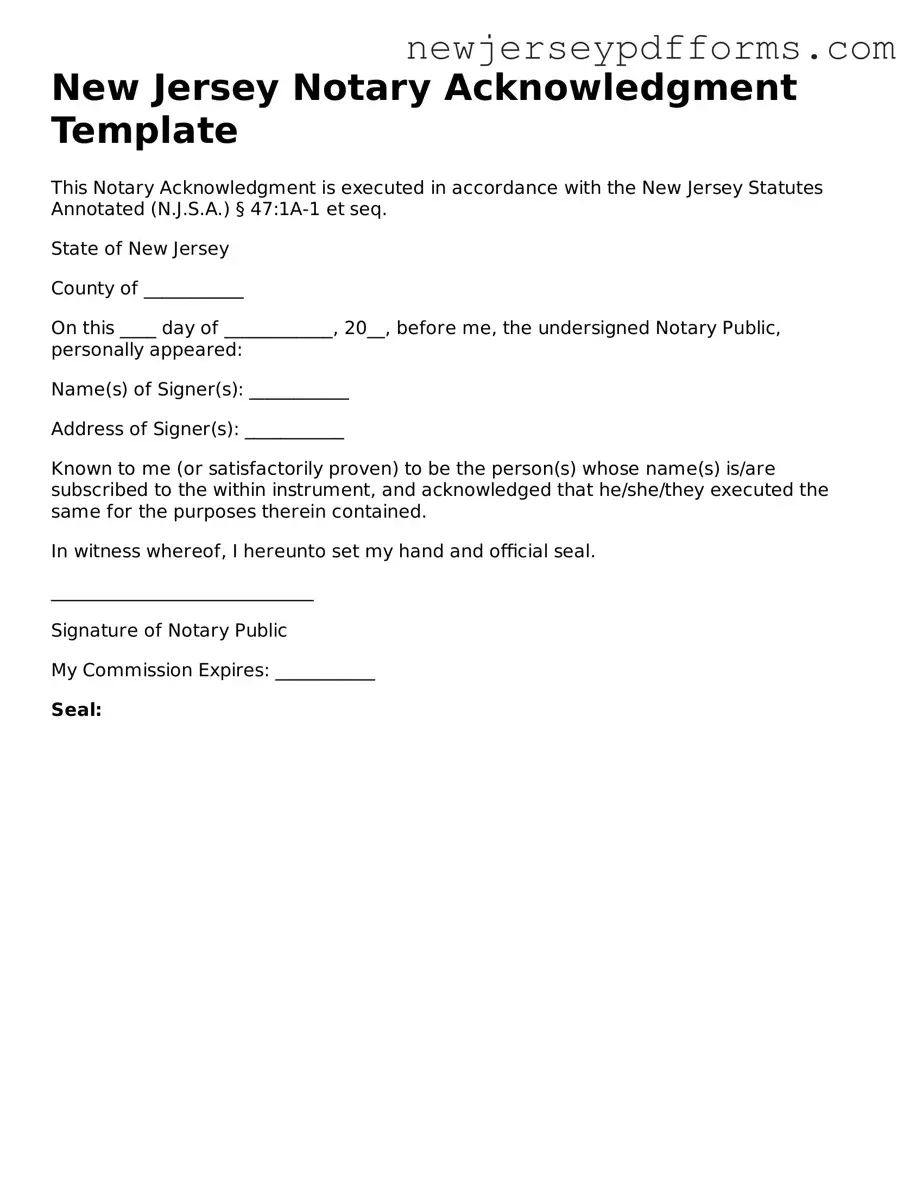What is a New Jersey Notary Acknowledgement form?
The New Jersey Notary Acknowledgement form is a legal document used to verify the identity of individuals signing a document. It serves as proof that the signer appeared before a notary public, who confirmed their identity and willingness to sign. This form is essential for ensuring the authenticity of various legal documents, including contracts and deeds.
When is a Notary Acknowledgement required in New Jersey?
A Notary Acknowledgement is typically required for documents that need to be recorded, such as property deeds, mortgages, and certain legal agreements. It provides assurance to third parties that the document has been executed properly. While not all documents require notarization, it is a good practice to include an acknowledgment for those that may have significant legal implications.
Who can serve as a notary public in New Jersey?
In New Jersey, a notary public must be a resident of the state or an employee of a business located in the state. They must also be at least 18 years old, have no felony convictions, and complete a notary application process. Once appointed, notaries can perform their duties throughout the state, providing services to individuals and businesses alike.
What information is included in a Notary Acknowledgement form?
A typical Notary Acknowledgement form includes the name and signature of the signer, the date of the acknowledgment, and the notary's details, including their name, signature, and seal. The form may also specify the type of document being acknowledged and the capacity in which the signer is acting, such as an individual or a representative of an organization.
Can a notary public refuse to acknowledge a signature?
Yes, a notary public has the authority to refuse to acknowledge a signature if they have doubts about the identity of the signer or if the signer appears not to understand the document they are signing. Additionally, if the notary suspects coercion or fraud, they should decline to perform the acknowledgment. It is crucial for notaries to act with integrity and uphold their responsibilities.
Is there a fee for notarization in New Jersey?
Yes, New Jersey law allows notaries to charge a fee for their services. The maximum fee for a standard acknowledgment is set by the state, and notaries may charge additional fees for travel or other services. It is advisable for individuals seeking notarization to inquire about fees in advance to avoid any surprises.
How long is a Notary Acknowledgement valid?
A Notary Acknowledgement does not have an expiration date in itself. However, the underlying document may have its own validity period or conditions for enforcement. It is essential for individuals to be aware of any time limits associated with the documents they are signing, especially in legal or real estate transactions.
Where can I find a Notary Acknowledgement form in New Jersey?
A Notary Acknowledgement form can often be obtained from legal stationery stores, online legal document providers, or directly from a notary public. Many notaries also have templates available for use. It is important to ensure that the form complies with New Jersey's legal requirements to ensure its validity.

